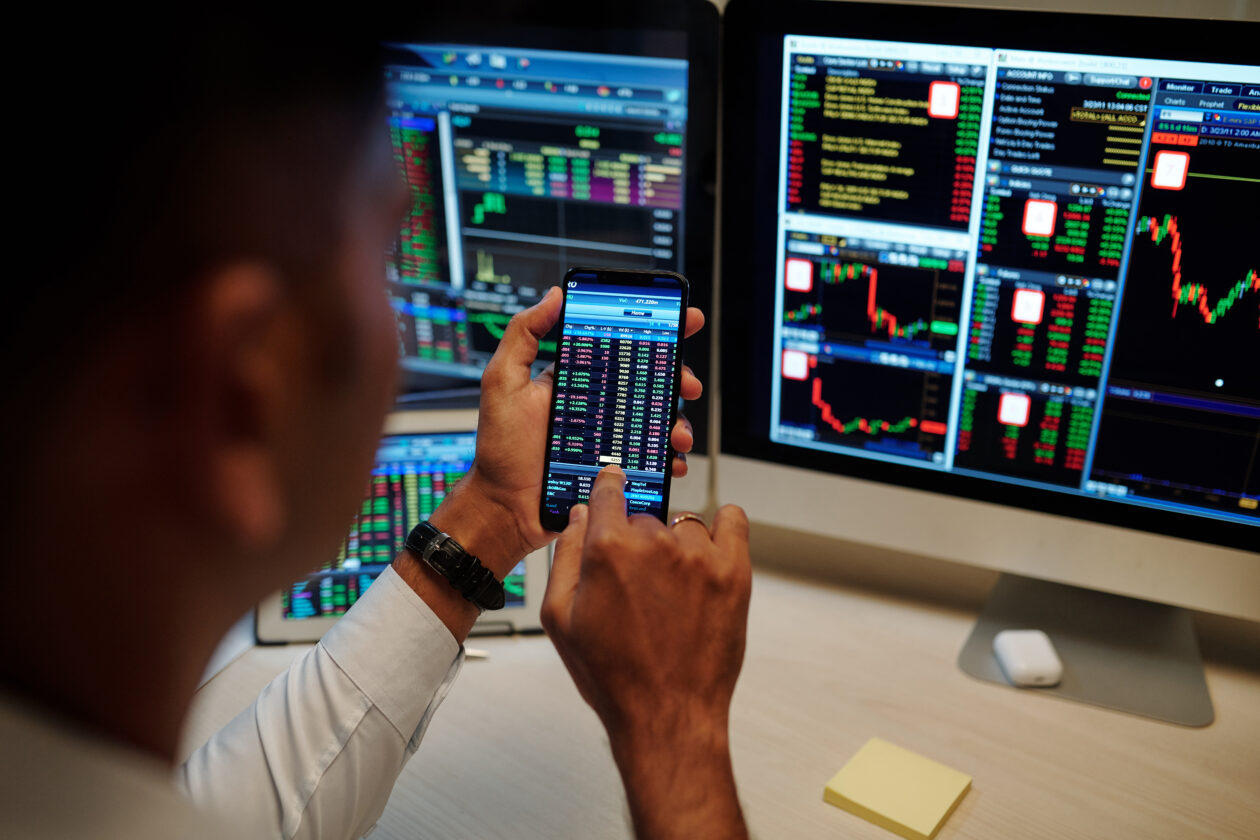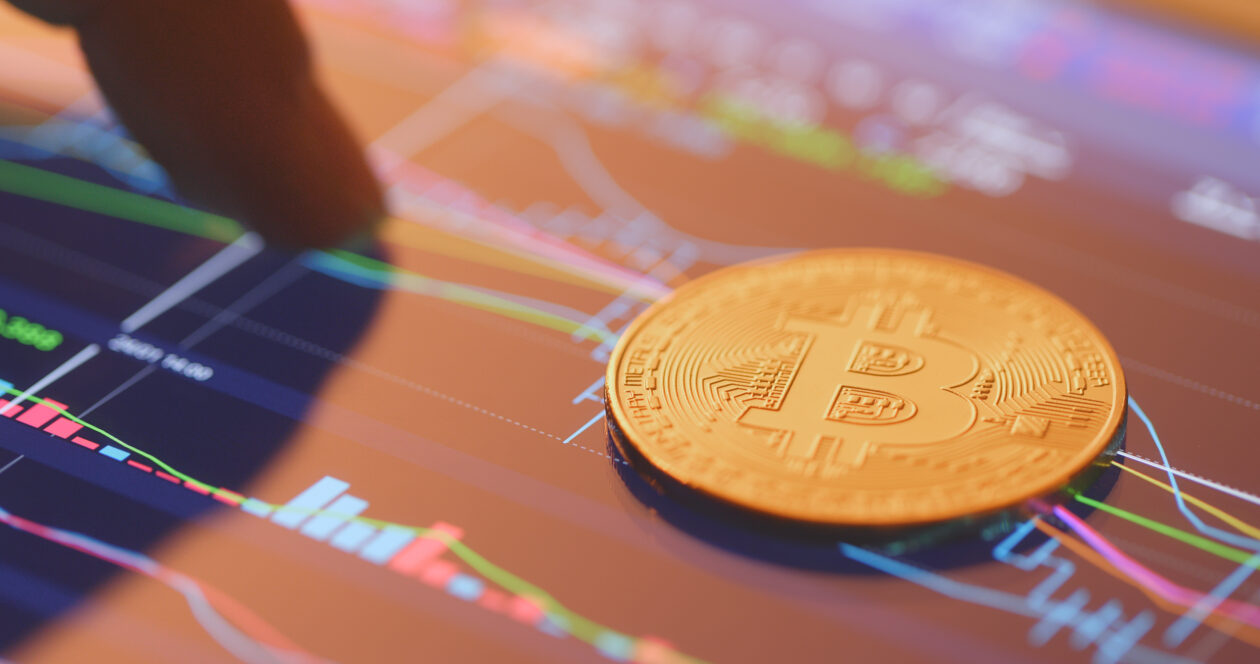Bitcoin and Ether gained marginally on Tuesday afternoon in Asia. Most other top 10 non-stablecoin cryptocurrencies gained, except Solana and Tron, with Polkadot leading gains at almost 3%. The Forkast 500 non-fungible token (NFT) Index dropped as the U.S. Securities and Exchange Commission (SEC) charged Los Angeles-based media company Impact Theory for offering and selling NFTs as unregistered securities.
See related article: Asia’s richest man bets on blockchain, CBDC
Crypto market in caution mode
Bitcoin gained 0.24% to US$25,984 in 24 hours to 4 p.m. in Hong Kong, which brought its weekly losses to 0.44%, according to CoinMarketCap data. The world’s largest cryptocurrency’s trading volume jumped 33.39% to US$11 billion as its market capitalization climbed 0.04% to US$505.24 billion in the past 24 hours.
“Any additional rate hikes, or concerted attempts by BRICS to reduce reliance on the U.S. dollar as reserve currency do certainly impact price movements, but the sustained importance of Bitcoin’s four-year cyclical growth pattern should not be dismissed, until proven otherwise,” Ben Caselin, vice president and chief strategy officer at crypto trading platform MaskEX, told Forkast on Tuesday.
“Exactly where Bitcoin prices might go over the course of 2024 and 2025 depends on too many factors to make any sensible guess, but an attempt to break above US$36,000 before the end of 2023 wouldn’t be out of the ordinary. September, however, I would still approach as just another, perhaps final, accumulation month,” he added.
A report by U.S. banking giant JPMorgan Chase has forecast “limited downside” for the crypto market as losses slow. Analysts found a drop in the number of Bitcoin-linked futures contracts on exchanges that are yet to be settled — a sign that downward price movement is losing its momentum.
Ether, world’s second-largest cryptocurrency, gained 0.31% to US$1,646 in the past 24 hours, but posted a weekly loss of 1.24%.
However, most of the major cryptocurrencies continue to trade sideways amid the prevailing caution in the markets, Samer Hasn, market analyst at multi-asset brokerage firm XS.com, told Forkast on Tuesday.
The continued state of caution in the cryptocurrency market is reflected in the decline in trading volumes to the lowest levels in years, Hasn said.
“I believe that this accumulation, in conjunction with the record decline in trading volumes, reflects the state of caution among investors as a result of the lack of clarity in the regulatory environment for the cryptocurrency market so far, especially in the United States with the ongoing court battles between regulators, led by the SEC, and cryptocurrency developers, exchanges, and others,” Hasn added.
Most other top 10 non-stablecoin cryptos gained in the past 24 hours, except Solana and Tron. Polkadot led gains, rising 2.97% to US$4.58, and gained 3.32% on the week.
Total crypto market capitalization gained 0.33% to US$1.05 trillion, while market volume rose 27.29% to US$24.05 billion in the past 24 hours.
NFT traders about to ‘get wrecked?’
The main Forkast 500 NFT index fell 0.40% to 2,231.59 in 24 hours to 6.40 p.m. in Hong Kong, losing 3.53% on the week.
Forkast’s Ethereum and Polygon indexes were also down, while the Solana index rose.
The NFT market sentiment took a hit after the U.S. SEC charged Los Angeles-based media company Impact Theory with offering and selling NFTs as unregistered securities. This is the first direct enforcement action by the regulator against an NFT project.
Today we charged Impact Theory LLC, a media and entertainment company headquartered in Los Angeles, with conducting an unregistered offering of crypto asset securities in the form of purported NFTs. Impact Theory raised approximately $30 million from hundreds of investors.
— U.S. Securities and Exchange Commission (@SECGov) August 28, 2023
“I think we can all agree that NFT collection prices have already seen quite the downturn, but sentiment can indeed worsen over the short-term,” Caselin of MaskEx told Forkast.
“As for the SEC, I do not believe there will be too many significant changes in its current positioning, not until after the U.S. Presidential election. In other words, while we may (or may not) see the approval of a Bitcoin spot ETF, overall it’s likely we will see more enforcement actions and NFTs will certainly not be spared,” Caselin added.
According to Hasn of XS.com, this intervention by the SEC may deepen the crisis of confidence between the participants and cryptocurrency markets, including non-fungible tokens markets, which are facing a continuous deterioration in momentum.
“[This] may put more pressure on prices and trading volumes that are already low, until the regulatory and legislative environment governing this market becomes clear,” Hasn added.
Total NFT transactions dropped 3.86% in the past 24 hours, according to CryptoSlam data. At the same time, sales volume gained 7.34% to US$10.40 million.
Sales volume on Ethereum gained 9.52% to US$5.62 million, and the rest of the top five chains – Solana, Mythos, ImmutableX and Polygon – all posted gains.
“Interestingly, most of the NFT composites are up after a couple of days of positive sentiment in the NFT market, but I suspect they were confusing rising prices (from low volume) for some type of real rebound. Traders are about to get wrecked,” said Yehudah Petscher, NFT strategist for Forkast Labs.
Asian, European equities rise; U.S. stock futures in red

All Asian stock markets rose at the end of trading hours on Tuesday, after Wall Street ended in the green overnight. Investors are awaiting U.S. economic data releases later this week, including the personal consumption expenditures price index on Thursday and the labor report on Friday.
Investors are also looking forward to the latest Purchasing Managers’ Index (PMI) data from China which is expected to provide clarity on the current health of the world’s second-largest economy.
China halved stamp duty on stock transactions to 0.05%, and lowered margin requirements for buying securities to 80% from 100%, in an attempt to boost capital markets.
China’s Shanghai Composite and Shenzhen Component Index, Japan’s Nikkei 225, Hong Kong’s Hang Seng, and South Korea’s Kospi all closed the day in the green.
Later this week, China’s banks such as Industrial & Commercial Bank of China and China Construction Bank are expected to cut deposit rates, as the nation struggles to boost economic growth, according to a Bloomberg report.
“This is an incremental policy step, not a game changer because people’s confidence is still low,” said Larry Hu, head of China economics at Macquarie Group, according to the Bloomberg report. “I think we’re going to see property easing come through in the coming weeks, I just don’t know if it’s going to be strong enough.”
U.S. stock futures dropped as of 7.30 p.m. in Hong Kong on Tuesday. The Dow Jones Industrial Average futures, the S&P 500 futures, and the Nasdaq 100 Futures were all in the red.
Federal Reserve Chairman Jerome Powell last Friday pointed to another possible interest rate hike this year if the world’s largest economy is unable to keep inflation declining. The Fed raised its interest rate to between 5.25% and 5.50% in July, the highest level in 22 years.
“Markets bought into this idea that we could have resilient growth across the west and yet all those inflation pressures would disappear on their own and the central banks could move from tightening to easing,” said JP Morgan asset management strategist Karen Ward, according to a Bloomberg report.
“The likelihood of a recession I think is still high,” Ward said. “That’s what’s going to get rid of inflation.”
European bourses gained on Tuesday, with the benchmark STOXX 600 and Germany’s DAX 40 rising during afternoon trading hours in Europe.
German consumer morale weakened unexpectedly heading into September, with Germany’s GfK Consumer Climate Indicator falling to a four-month low of -25.5 as persistently high inflation continued to erode market sentiment.
(updates with equities section.)






